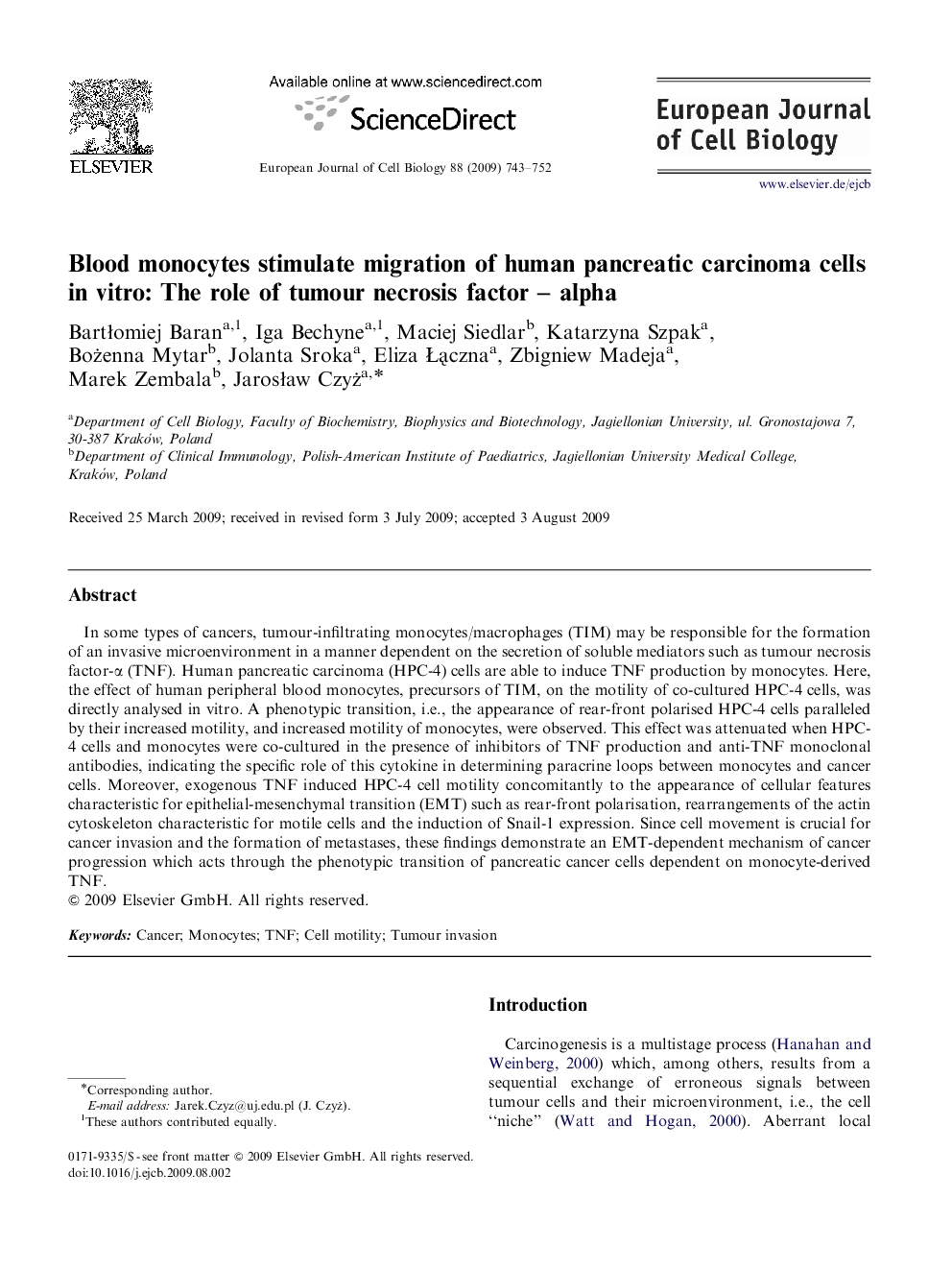| Article ID | Journal | Published Year | Pages | File Type |
|---|---|---|---|---|
| 2179012 | European Journal of Cell Biology | 2009 | 10 Pages |
In some types of cancers, tumour-infiltrating monocytes/macrophages (TIM) may be responsible for the formation of an invasive microenvironment in a manner dependent on the secretion of soluble mediators such as tumour necrosis factor-α (TNF). Human pancreatic carcinoma (HPC-4) cells are able to induce TNF production by monocytes. Here, the effect of human peripheral blood monocytes, precursors of TIM, on the motility of co-cultured HPC-4 cells, was directly analysed in vitro. A phenotypic transition, i.e., the appearance of rear-front polarised HPC-4 cells paralleled by their increased motility, and increased motility of monocytes, were observed. This effect was attenuated when HPC-4 cells and monocytes were co-cultured in the presence of inhibitors of TNF production and anti-TNF monoclonal antibodies, indicating the specific role of this cytokine in determining paracrine loops between monocytes and cancer cells. Moreover, exogenous TNF induced HPC-4 cell motility concomitantly to the appearance of cellular features characteristic for epithelial-mesenchymal transition (EMT) such as rear-front polarisation, rearrangements of the actin cytoskeleton characteristic for motile cells and the induction of Snail-1 expression. Since cell movement is crucial for cancer invasion and the formation of metastases, these findings demonstrate an EMT-dependent mechanism of cancer progression which acts through the phenotypic transition of pancreatic cancer cells dependent on monocyte-derived TNF.
